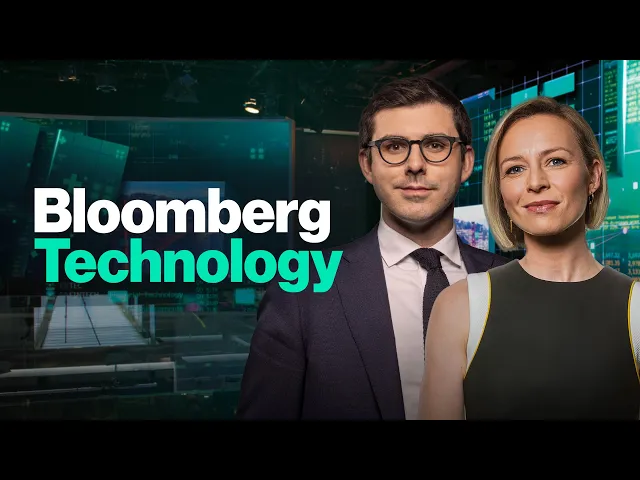Reid Hoffman on AI Investing, Trade Policy and Doge

Inside big tech's AI and tariff survival strategy
From the heart of Silicon Valley, tech pioneer Reid Hoffman offers unique perspectives on how tech giants are navigating uncertain waters of AI regulation and trade wars.
The delicate balance of AI innovation amid global uncertainty
Reid Hoffman, co-founder of LinkedIn and partner at Greylock, sees both promise and peril in today's tech landscape. Major tech companies face a pivotal moment as Google's resilient advertising business stands in stark contrast to Intel's dramatic restructuring announcement. This divergence highlights how differently positioned companies are in their ability to weather economic headwinds and regulatory challenges.
Key insights from the tech landscape:
- Google demonstrated surprising resilience in its core search business despite AI disruption fears, with YouTube and search growing 10% year-over-year
- Intel's painful restructuring includes significant management layoffs as new CEO attempts to transform company culture and reduce bureaucracy
- Apple is accelerating its manufacturing shift from China to India, aiming to double output amid growing trade tensions
- The Trump administration is pressuring Europe to abandon its AI regulations, viewing them as targeting American companies
The regulatory chess game reshaping tech's future
What's particularly striking is Hoffman's assessment of the EU's AI Act. While he agrees with the Trump administration that European regulations risk being overreaching, he emphasizes that businesses need regulatory stability above all else. "Even if you disagree with regulations, at least you know how to navigate them," Hoffman explains.
Companies are already adapting to this uncertain environment in concerning ways. Hoffman revealed that some U.S. tech companies are deploying outdated AI models to European markets just to pass certification processes, then focusing real innovation elsewhere. This regulatory arbitrage creates a two-tier system that ultimately hurts European consumers and businesses.
The contrast between approaches is stark: Europe has created a clear but restrictive regulatory framework, while the U.S. lacks a coherent regulatory vision for AI, creating hesitation among companies unsure how to navigate future rules that might emerge from Washington.
Big tech's calculated response to unpredictability
Despite the uncertainty, major tech players are doubling down on AI investments. When asked if he worried about the willingness to deploy capital on infrastructure, Hoffman was unequivocal: "Fundamentally? No." He sees the strategic
Recent Videos
How To Earn MONEY With Images (No Bullsh*t)
Smart earnings from your image collection In today's digital economy, passive income streams have become increasingly accessible to creators with various skill sets. A recent YouTube video cuts through the hype to explore legitimate ways photographers, designers, and even casual smartphone users can monetize their image collections. The strategies outlined don't rely on unrealistic promises or complicated schemes—instead, they focus on established marketplaces with proven revenue potential for image creators. Key Points Stock photography platforms like Shutterstock, Adobe Stock, and Getty Images remain viable income sources when you understand their specific requirements and optimize your submissions accordingly. Specialized marketplaces focusing...
Oct 3, 2025New SHAPE SHIFTING AI Robot Is Freaking People Out
Liquid robots will change everything In the quiet labs of Carnegie Mellon University, scientists have created something that feels plucked from science fiction—a magnetic slime robot that can transform between liquid and solid states, slipping through tight spaces before reassembling on the other side. This technology, showcased in a recent YouTube video, represents a significant leap beyond traditional robotics into a realm where machines mimic not just animal movements, but their fundamental physical properties. While the internet might be buzzing with dystopian concerns about "shape-shifting terminators," the reality offers far more promising applications that could revolutionize medicine, rescue operations, and...
Oct 3, 2025How To Do Homeless AI Tiktok Trend (Tiktok Homeless AI Tutorial)
AI homeless trend raises ethical concerns In an era where social media trends evolve faster than we can comprehend them, TikTok's "homeless AI" trend has sparked both creative engagement and serious ethical questions. The trend, which involves using AI to transform ordinary photos into images depicting homelessness, has rapidly gained traction across the platform, with creators eagerly jumping on board to showcase their digital transformations. While the technical process is relatively straightforward, the implications of digitally "becoming homeless" for entertainment deserve careful consideration. The video tutorial provides a step-by-step guide on creating these AI-generated images, explaining how users can transform...
